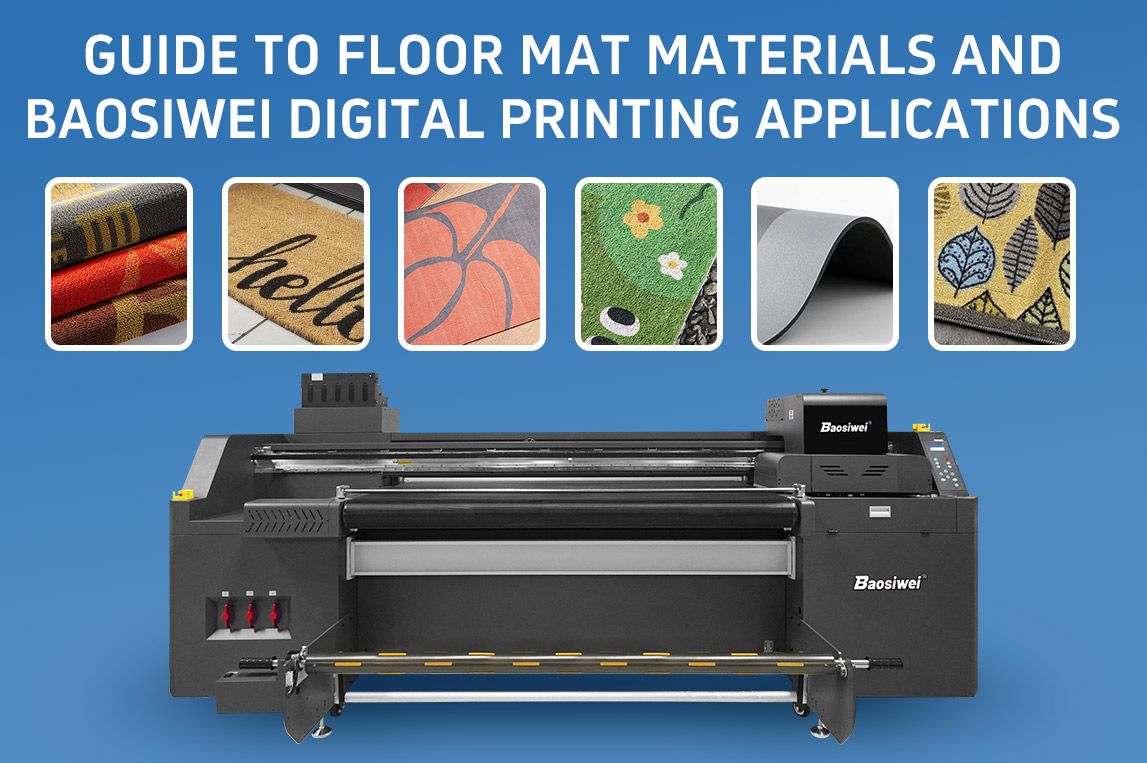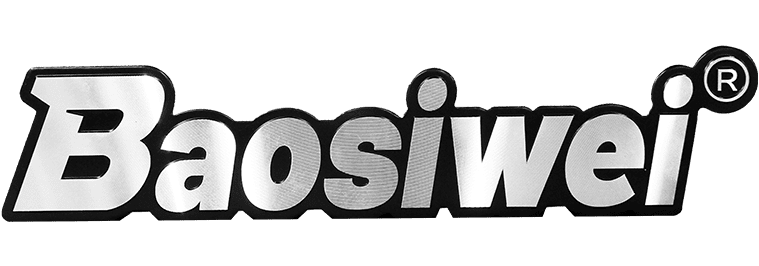
Guide to Floor Mat Materials and Baosiwei Digital Printing Applications
Market Trends
Rising Demand for Customization: According to Grand View Research, personalized home and commercial products continue to gain market share, creating new opportunities for customized floor mats.
Eco-Friendly Materials + Digital Printing: According to Transparency Market Research, the industrial floor mat market is expected to grow from USD 1.7 billion in 2024 to USD 2.9 billion by 2035, representing a compound annual growth rate (CAGR) of approximately 5.0% between 2025 and 2035. Growth is primarily driven by demand for anti-static, chemical-resistant, and sustainable flooring solutions.
Global Market Potential: The global floor mat market was valued at USD 2.28 billion in 2023 and is projected to reach USD 5.81 billion by 2030 (Virtue Market Research). Automotive floor mats alone are expected to reach USD 18.47 billion by 2032 (Market Research Future).
Application Areas:
- Advertising & Branding: Custom logo mats for hotels, malls, and retail chains.
- Industrial & Safety: Anti-slip mats with warning signs for factories and labs.
- Home Use: Personalized bathroom and living room mats with decorative designs.
- Automotive: Leather mats with tailored branding and patterns.
7 Common Floor Mat Materials
1. PVC Floor Mat
Definition: PVC mats are made from polyvinyl chloride resin using foaming or calendaring techniques.
Features: Good anti-slip performance, waterproof, oil-resistant, easy to clean, cost-effective.
Applications: Entrances of commercial buildings, kitchens, bathrooms, gyms, swimming pools.
Pros: Affordable, durable, easy to maintain.
Cons: Less comfortable underfoot, limited eco-friendliness.
2. Coil Mat
Definition: Coil mats are made with PVC or rubber backing and coiled plastic filaments on the surface.
Features: Excellent dirt-trapping capacity, water-absorbing, wear-resistant, stylish.
Applications: Shopping malls, office building lobbies, hotel entrances.
Pros: Strong cleaning effect, durable, decorative.
Cons: Heavier, harder to clean thoroughly.
3. Leather Mat
Definition: Leather mats are made from synthetic or genuine leather, popular in cars and premium interiors.
Features: Luxurious texture, waterproof, customizable.
Applications: Car floor mats, high-end residential entrances, customized gifts.
Pros: Elegant appearance, suitable for digital printing, durable.
Cons: Higher cost, wear resistance varies.
4. Tech Velvet Mat
Definition: Tech velvet mats use superfine fibers with a soft, velvety surface.
Features: Soft touch, water absorption, quick-drying, ideal for high-resolution printing.
Applications: Bedrooms, living rooms, bathroom mats, customized decorative mats.
Pros: Comfortable, washable, print-friendly.
Cons: Slightly less durable against heavy wear.
5. Coir Mat
Definition: Coir mats are made from natural coconut husk fibers.
Features: Eco-friendly, biodegradable, rough texture for dirt scraping.
Applications: Outdoor entrances, gardens, eco-friendly households.
Pros: Sustainable, durable, rustic charm.
Cons: Less comfortable, poor water resistance, limited printability.
6. Synthetic Fiber Mat
Definition: Synthetic fiber mats are made from nylon, polyester, or other man-made fibers.
Features: Colorful, versatile designs, dust and water absorbing, print-friendly.
Applications: Offices, living rooms, hotels, exhibitions.
Pros: Durable, customizable, vivid color performance.
Cons: Low-end options may lack eco-friendliness.
7. Diatom Mud Mat
Definition: Diatom mud mats are made from diatomaceous earth, designed for fast water absorption.
Features: Quick-drying, anti-bacterial, eco-friendly.
Applications: Bathrooms, kitchens, humid environments.
Pros: Highly absorbent, hygienic.
Cons: Fragile, unsuitable for heavy loads.
Digital Printing Applications in Floor Mats
Digital printing enables small-batch, high-resolution, on-demand production. PVC, leather, tech velvet, and synthetic mats can all be customized with logos, patterns, and full-color graphics, reducing inventory and increasing flexibility.
Application Areas:
- PVC mat printing solutions
- Leather / Tech velvet UV printing
- Custom logo mat case studies
Conclusion
Floor mats are no longer just functional items—they are a medium for branding, aesthetic design, and customer engagement.
Advantages of Digital Printing:
- Produce highly customized mats in small or large batches without excessive inventory.
- Create high-resolution, full-color graphics to meet client branding or decorative needs.
- Reduce lead times and improve market responsiveness.
For B2B buyers, distributors, and manufacturers, investing in digital printing solutions for floor mats provides access to a growing market driven by customization and eco-conscious materials. With consumer preferences shifting toward personalized and sustainable products, digital printing offers a competitive edge and new revenue streams.
